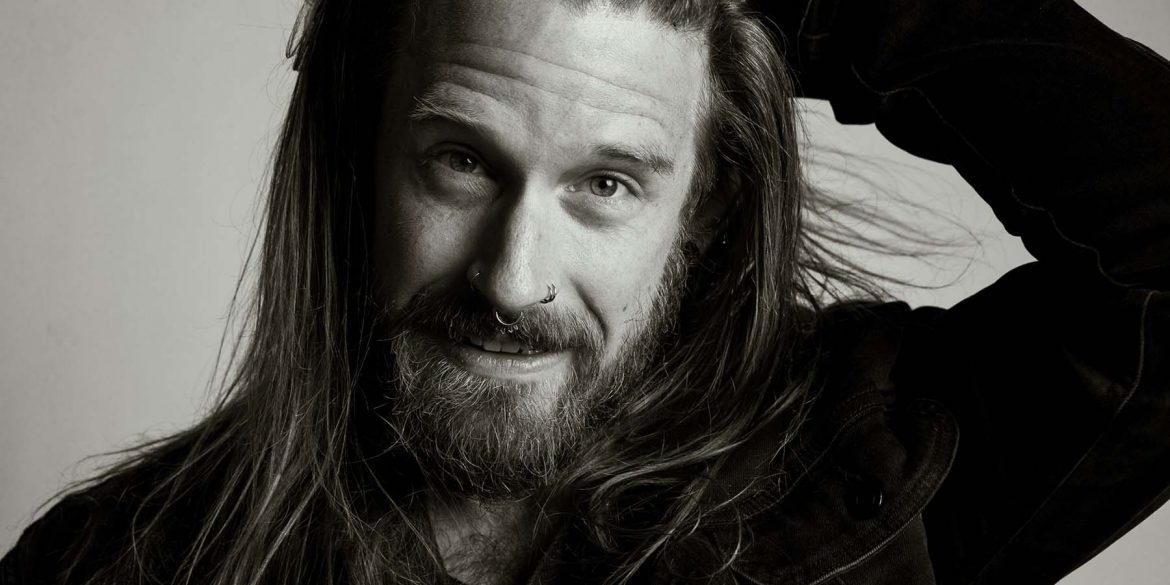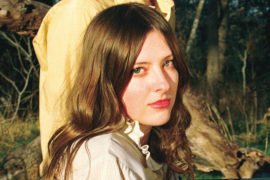Listening to an album is akin to reading a book. Start the music at track four and you’ll miss sound development, narrative lyrics or pivotal moments that are necessary to digest and interpret what you are experiencing. ‘Skeleton Party’ is one of those albums.
Joshua Powell isn’t making easily digestible pop tunes that you can dance to at the club. He and his band are making audible experiences that leave you wondering where the hell the next track will take you with songwriting that easily translates to a collection of poems, leaving you with the same experience whether hearing them in a song or reading them on the page.
‘Skeleton Party’ is one of the most diverse, expansive and unexpected albums I’ve heard all year. It’s a Tim Burton-esque trip that will have you hastily hitting repeat once its eight tracks have concluded, eager to take the ride again.
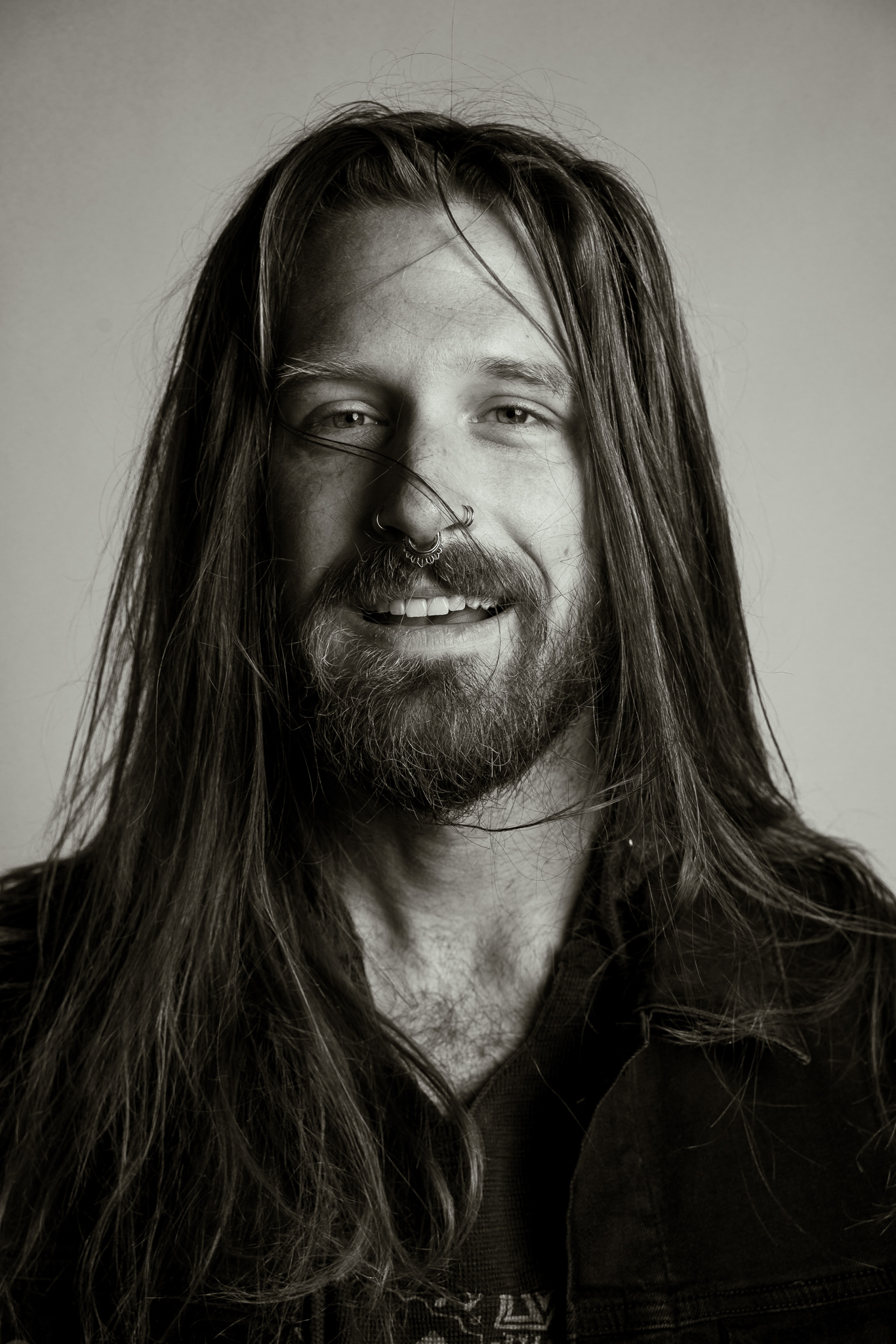
Jacob Moran: Why the ‘Skeleton Party’ and what was the focus of this album?
Joshua Powell: When thinking of album titles I always want them to be read in multiple ways. It isn’t a concept album, it’s a time capsule. I didn’t spend the past two years thinking of one concept, it just happened. ‘Sad boy at the skeleton party’ was the first song that we wrote for this album and I knew that was too long for an album title. ‘Skeleton Party’ sounded great and it stuck with us. The world was a big hell mouth at the time of recording. Halloween and eerie themes sort of naturally fell into the music. It can be read as a celebratory rock image with a bunch of spooky imagery, but can also be an ode to those who are at the end of their road and trying to make the best out of a bad situation.
JM: The album reads like a fever dream with experimental sounds weaving a story. Is there a narrative to this album? It very much feels like a hypnotic dream that the listener fell into.
JP: Nothing concrete, at least not intentionally. It is meant to be dream-like. I retroactively came up with a story for the record as a companion piece. There usually are stories behind the records that we make that just never get told. I want to be a world builder, all of my favorite creators are. That fever dream feeling you are speaking of probably comes from the fact that sometimes I am singing as me and other times I am singing as any number of characters that I created. Their perspectives floating from one to another without any indication is intentional, a technique that I picked up from Virgina Woolf. It’s a cool way to write an album because I think that our self concepts are fluid and we reshape them all the time. It frees you as a writer to turn it into a surrealist coloring book.
JM: A lot of your lyrics read like poems. There is a ton of lush imagery and metaphors that show depth to your song writing. Songs like ‘Decoder Ring’ and ‘Nine of Swords’ are haunting and descriptive. Are you a technical writer in that aspect? Not a lot of music has the level of writing that yours does.
JP: I’m a huge fan of technical writing. I’m a professor of song writing at a college and an english nerd from a young age. So when I teach my students about song writing I use Katy Perry as a reference. Her lyrics aren’t very meaningful and that is okay. She makes pop music with a low threshold and accessibility intentionally. But I want to be able to read my lyrics to you out loud and have them sound as beautiful as they are on the song. For my writing to be able to stand alone is very important to me.
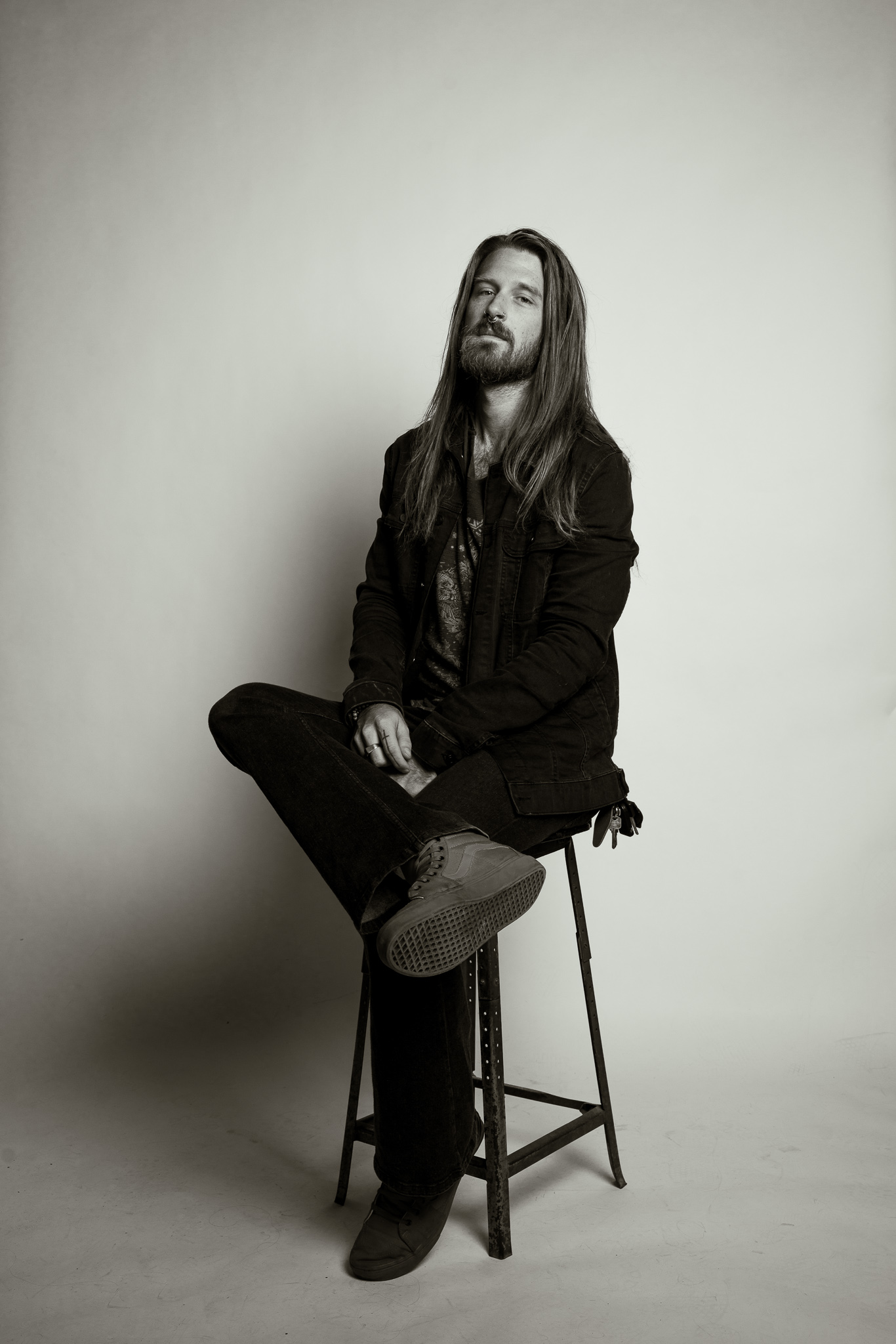
JM: How personal is this album?
JP: I’m a person. I write, and life seeps in. Parts of dreams seep in. I always joke with people about songwriting when I say that your life is going to suck if you wait to get broken up with before you write more songs. If you’re not experiencing something worth writing about then you should go out and experience more of the world. Songwriting is not very emotional for me. It isn’t a cathartic process. I look at it as academic or intellectual work. I want it to be beautiful and sound but I want it to be something I’m proud of as well.
JM: This album takes some turns sonically that you don’t really expect it to. A song will set a tone within the first couple minutes and then switch drastically in the last minute or two. When taking sonic risks like that, are you ever worried that the listener won’t buy into it? Is it calculated or did the music just take you there?
JP: I don’t worry about that anymore. It isn’t pop music. If people don’t like it I get it. I made it weird on purpose. I have a newer sense of confidence when it comes to making music. People I look up to don’t care about critics or commercial expectations so much as they are chasing where the music takes them. I want to keep growing and that is going to mean changing. As long as I’m not hungry and the people who love me really love me, then I’m happy. We take those turns in our songs intentionally and organically. I may want to add a double at the end of the song and then a bandmate will recommend we do a modulation. So the song ends up being an extra two minutes. The music took us there.
JM: Shooting the video for ‘Sad boy at the Skeleton Party’ at The Healer seemed like a perfect pairing for a video for the opener to the album. The lighting, the skeleton puppets made it feel like you were at an underground party. How was it filming that video?
JP: I’m a big fan of incorporating other forms of media as a companion piece outside of music. We created most of the props and effects for that video the day of at The Healer. With this video I really wanted to be more inclusive with my art. I made some of the props in the video with paper mache. I made a book of poetry during lockdown and have been able to sell that through our music. Just having another art form or outlet for people to be able to experience with the music is vital to me. Matt Panfil made that video, he’s also the visual artist behind The Healer. He’s very talented.
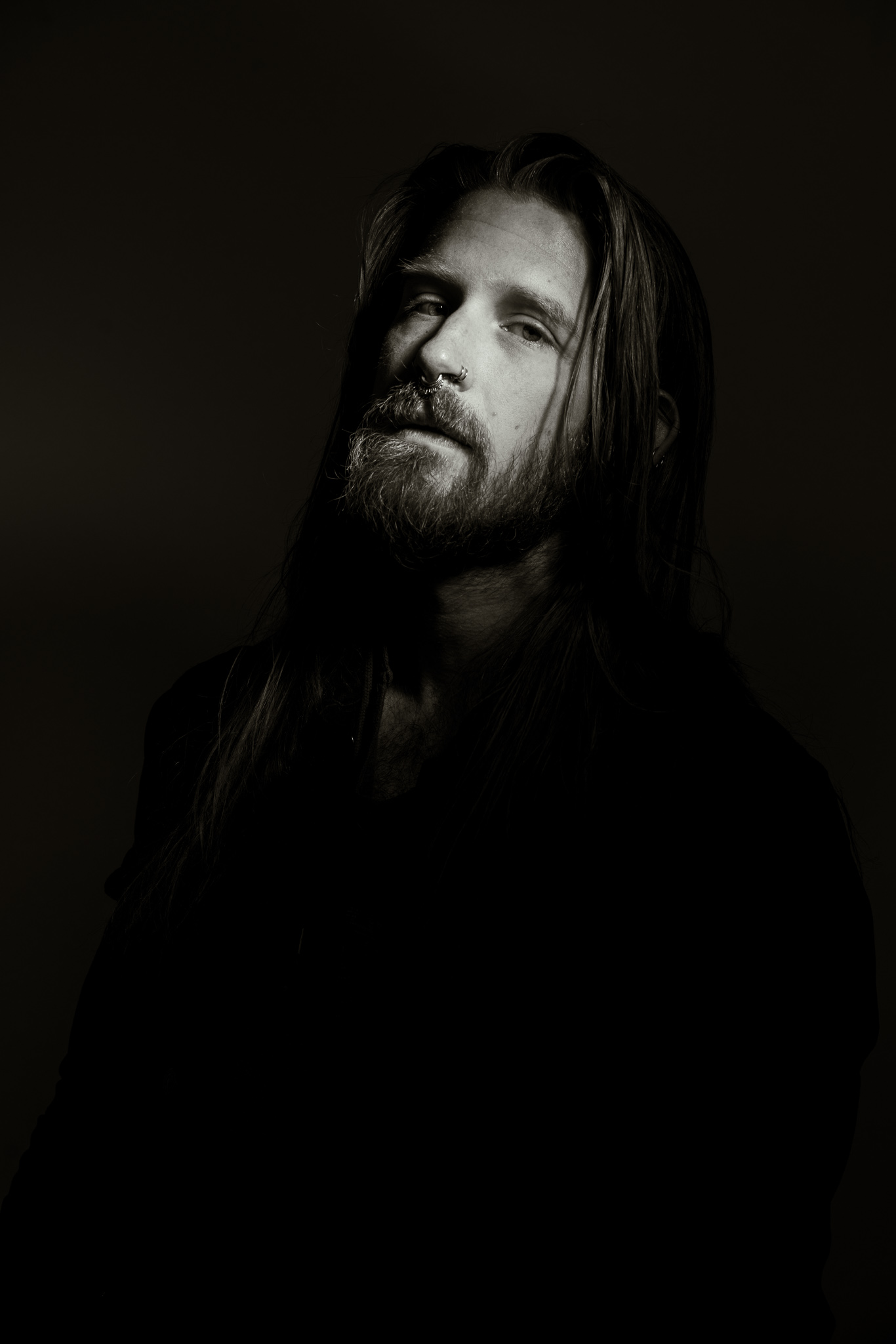
JM: You’re releasing vinyl with your label Romanus Records and the wax is very unique and lends itself well to the vibe of the music for the record. I’ve heard that vinyl is expensive to make. Why did you choose vinyl over traditional CDs?
JP: We made a record in 2015 that we did a limited run that surprisingly sold pretty well. It was more of a vanity project than anything because I always thought it would be cool to have my own music on wax. Outside of a deal we have this partnership with Romanus Records. We became friends with the founder and worked for him part time and learned a lot about that side of the business. He heard our new stuff and offered us a deal. Having that label backing really helps when making decisions like whether or not to press vinyl. One thing record labels are looking for are musicians who will hit the road and push their music hard. So when we go on tour we’ll have these beautiful, hand made splattered vinyl. We’re hardcore DIY, blue collar worker boys from the Midwest who just want to make cool stuff and help our friends make money.
JM: I’m sure the fact that you’re going on tour soon is sort of surreal for you given the year we’ve had. I have never performed anything live so I’m curious what that feeling is like playing live music in front of people.
JP: Man, for someone who makes music you have to channel it; record it and perform it. Recording is awesome but it is also tedious and takes a lot of time and money. Playing live is not tedious, it’s different every night. It’s generative. Every show you play you stand to make money or earn fans. You might score some cool radio show or make an important connection with someone. No matter how shitty a show might feel in some small town on a Tuesday night, there’s always a chance that someone just saw you and you blew their mind. You can see from touring the progress of your growth as a band. Tour is an amazing visual metric of your own growth. It builds your brand but also makes you into a better band.
JM: Do all shows feel different?
JP: Every show is an organism. No matter how many times you go to the same venue in the same town it is never an identical experience. It’s a different collection of people. I was getting pretty depressed early on in my career when I would play these shows at bowling alleys and coffee shops feeling like no one cared. I had a friend who gave me this gospel. They said “You know every show you play, that’s the only time it’s ever going to be that exact group of people in the room. Take ownership of that and feel the room. Tailor the experience to them.” I used to have a set we would play every night because we thought it was our best stuff, but that gets so stale. It’s easy to get worn down because this industry can make you feel worn down and not valued but every chance you have to experience that different organism you have a new chance to create something that the audience will remember.
JM: If you could have listeners take away one thing from ‘Skeleton Party’ what would that be?
JP: Whatever you take from it. I’m sure that isn’t the answer you’re looking for. I have no clever thing to say. There is no message. It’s just a painting. We’re just trying to make something cool. I used to be an evangelical. Every single faction of my life was cloaked with propaganda. An all encompassing way to preach to people and deliver a message. I know longer think that way. Take from it what you like.

